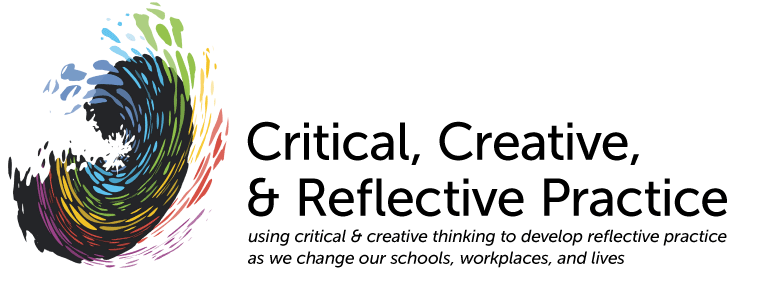Examples of Work-in-progress Under Phase F
Interview Guide to be used during
initial informant interview
JS
Interview Guide
Governing Question:
What are the steps that I can take to engage the adult learning communities in using the principles of theater arts to prepare them to create social change?
Introduction:
a. thank the interviewee for their time and confirm the allotted time to which we had agreed for this interview
b. provide a brief description of my purposes and research:
1) exploring the question of how use of theater arts can be used in adult education environments to support learning that prepares adults to create social change
2) brief explanation of Critical and Creative Thinking program
3) ask interviewee to explain their role in their organization/work situation
Questions:
Theater in Education
1. When you were first starting to involve yourself in the use of theater in education, what had you done to prepare yourself (informal and formal education)? In what ways do you wish you had been more prepared?
2. Can you tell me about successful work experience that gave you a new excitement or encouragement about the potential of this work?
3. What are the objections that have been expressed by your potential clients/constituents when you have suggested how your work and methods might be useful in their environment?
4. What have you done to form collaboration with others toward using applied theater in education? How have the skills of others complemented your own?
Theater in Social Change Issues
5. Do you think that there are any key misconceptions that are broadly held about theater for social change?
6. *If you believe that that use of theater techniques in social change should be more prevalent in educational environments, what have been the barriers to making that happen?
Work Organization and Administration of the Program/Project
7. How do you organize the information that you need to manage your work?
8. What are the things that you need the most right now that would make your work most successful or fulfilling?
9. What are the most difficult parts of this work, especially the things that others may not tell me?
10. What do you do to keep up with the trends in the use of theater for social change and its educational applications?
11. *Are there any philosophical differences between you and your partners/staff in the way that you approach your goals? If so, how do you handle those?
12. * In terms of your daily work tasks, what are the parts that tend to be particularly boring or frustrating?
Additional Leads and Suggestions
13. Who are the other key people in the Boston area that might be able to provide insight or support?
14. Is there anything else that I should know?
Wrap-up
a. thank the interviewee for their time
b. mention how I will follow up with them, if appropriate
c. confirm again my support of the interviewee’s work and efforts
Other Reminders:
1. monitor the time throughout the interview
2. when possible, think about how to phrase my next question in a way that also acknowledges the previous statement or comment - change the question order as needed
*I consider some of the questions to be “secondary” if pressed for time and needing to sacrifice some; these may also be answered or addressed in the course of discussing the other questions.
